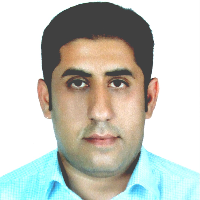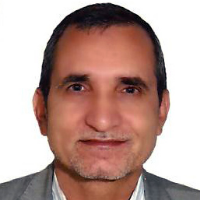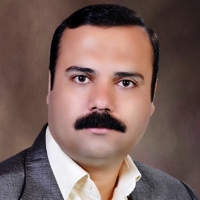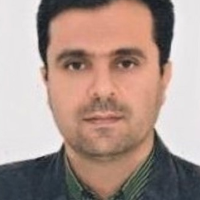دکتر محمدرضا فرجی
-
قدرت اقتصادی کشورها عمدتا متاثر از عواملی است که در قدرت ملی آن ها نقش آفرین است. در این میان، عوامل اقتصادی از جمله عواملی هستند که به ترتیب هم در قدرت ملی و هم در قدرت اقتصادی کشورها موثر هستند. برخی از چنین عواملی، به دلیل نقش آفرینی قابل توجه در نمایش قدرت ملی کشورها در عرصه های بین المللی و جهانی از ماهیتی ژیوپلیتیکی برخوردار هستند. این عوامل به عنوان منابع قدرت، مورد توجه قدرت ها در رقابت های ژیوپلیتیکی قرار می گیرند و تحت عنوان متغیرهای ژیوپلیتیکی اثرگذار در نظام ژیوپلیتیک منطقه ای و جهانی از اهمیت قابل توجهی برخوردارند. پژوهش حاضر بر پایه شناسایی عوامل اقتصادی موثر در قدرت اقتصادی، به دنبال تبیین متغیرهای ژیوپلیتیکی قدرت اقتصادی است. پرسش اصلی پژوهش این است که متغیرهای ژیوپلیتیکی قدرت اقتصادی مبتنی بر عوامل اقتصادی کدام است؟ شیوه گردآوری اطلاعات و داده ها به صورت کتابخانه ای و اسنادی انجام شده است. روش پژوهش نیز توصیفی تحلیلی است. در پاسخ به پرسش اصلی پژوهش، متغیرهای متاثر از عوامل اقتصادی تاثیرگذار در قدرت اقتصادی زیر عنوان «متغیرهای ژیواکونومیکی» تبیین شدند. هر کدام از این متغیرهای مفهومی، دربردارنده چندین متغیر عملیاتی اثرگذار در قدرت ملی و اقتصاد ملی است که در مجموع قدرت اقتصادی کشور را تعیین می کند.
کلید واژگان: عوامل اقتصادی, متغیرهای ژئوپلیتیکی, قدرت اقتصادی, ژئواکونومیEconomic power is considered as one of the important components in geopolitical competition. The economic power of countries is mainly influenced by the factors that play a role in their national power. Meanwhile, economic factors are among the factors that are effective in both national power and economic power of countries. Some of such factors have a geopolitical nature due to their significant role in displaying the national power of countries in the international and global arenas. As sources of power, such factors are considered by the powers in geopolitical competition.They are also considered as effective geopolitical variables in the regional and global geopolitical system. Based on the identification of economic factors effective in economic power, the current research seeks to explain the geopolitical variables of economic power. The main research question is what are the geopolitical variables of economic power based on economic factors? The approach of the current research is theoretical and explains the causal relationship between the dependent variables (economic power) and the independent variable (geopolitical variables). The method of collecting information and data has been done in base on library and documents form.The research method is descriptive-analytical. In response to the main question of the research, the variables affected by economic factors affecting economic power were explained under the title of "geoeconomic variables". Each of these conceptual variables includes several operational variables that are effective in national power and national economy, which determine the country's economic power as a whole.
Keywords: economic factors, geopolitical variables, economic power, geo-economy -
زمینه و هدفتغییرات اقلیمی به عنوان یکی از بزرگ ترین چالش های پیش روی بشریت، سیستم های طبیعی و انسانی را تحت تاثیر قرار داده است. سازمان پلیس به عنوان یک سازمان بزرگ و انتظام بخش عمومی در گستره ملی می تواند از این پدیده متاثر باشد. از این رو این پژوهش با هدف بررسی پیامدهای تغییر اقلیم بر محیط امنیتی- انتظامی در محدوده استان فارس دنبال شده است.روش شناسی: روش پژوهش در این مطالعه کیفی است و از روش گراندد تیوری استفاده شده است. با استفاده از روش نمونه گیری هدف مند و نظری، 27 نفر از فرماندهان انتظامی و کارشناسان محیط زیست در سطح استان فارس به عنوان نمونه انتخاب شدند.یافته هانتایج حاصل از نظریه گراندد تیوری در چهار الگوواره هسته ای «درک و پذیرش پدیده خشک سالی و تغییرات محیطی به عنوان یک مسیله عینی و بستر تغییرات امنیتی در فضای جغرافیایی فارس»؛ «بحران و چالش های بخش آب و تهدیدهای کم و بیش ظهور یافته امنیتی و انتظامی در استان فارس»؛ «ناهنجاری های فضای جغرافیایی (سرزمینی) یک مسیله پیچیده و پیامد تغییرات محیطی و سیاست های حکمرانی» و«افزایش جرایم عمومی و زیست محیطی در فضای جغرافیایی فارس و افزایش ماموریت های مستقیم پلیس» بوده است. پس از بررسی هر یک از مقولات هسته ای و عناصر پیوند دهنده آن ها، پدیده «تغییر اقلیم و تولید جرم در فضای جغرافیایی فارس» به عنوان پدیده کانونی پژوهش استخراج شد.نتایجتغییر اقلیم به عنوان یکی از متغیرهای دگرگونی فضای جغرافیایی فارس ابتدا خود بسترساز تولید جرم بوده و با تاثیر عمیق بر کمیت و کیفیت منابع آب استان بر این تاثیرات فضایی عمق داده است. این مسیله موجب پدیده های منفی در فضای جغرافیای استان به ویژه خالی از سکنه شدن مناطق روستایی و بخش کشاورزی از یک سو و چالش های اجتماعی و امنیتی در مناطق حاشیه شهری را موجب شده است. این شرایط موجب شده که استان فارس در یک وضعیت فروسایی و آنتروپی بالا به لحاظ امنیتی - انتظامی قرار بگیرد. آن چه که برای سازمان پلیس به عنوان یک الزام شناخته می شود اینکه ابتدا در متن تحولات محیطی استان به عنوان رصد کننده وضعیت قرار داشته باشد و با اتخاذ رویکردهای نوین و اجتماع محور پلیسی و بعضا رویکردهای تخصصی (پلیس تخصصی) خود را در متن فضایی تولید جرم ببیند تا اشراف دقیق نسبت به موضوعات جدید تولید جرم را داشته باشد.کلید واژگان: تغییر اقلیم, پیامدهای امنیتی - انتظامی, بحران های محیطی, استان فارسIdentifying the security-police consequences of climate change in Fars province: a qualitative studyBackground and objectiveClimate change, as one of the biggest challenges facing humanity, has affected natural and human systems in complex ways and has increased public and organizational concerns about the possible consequences of climate change. The police organization, as a large and public order organization in the national scope, can be affected by this phenomenon.MethodologyThe research method in this study is qualitative and the grounded theory method is used. Using the purposeful and theoretical sampling , 27 military commanders and environmental experts in Fars province were selected as a sample.FindingsThe results of grounded theory are in four core models. After examining each of the nuclear categories and their connecting elements, the phenomenon of "climate change and crime production in Fars" was extracted as the focal phenomenon of the research.ResultsWhat is obtained from the findings of the research is that climate change, as one of the variables of the transformation of the geographical space of Fars, was first of all a platform for the production of crime and with a deep impact on the quantity and quality of the province's water resources, it has deepened these spatial effects. This issue has caused negative phenomena in the geography of the province, especially the depopulation of rural areas and the agricultural sector on the one hand, and social and security challenges in the urban outskirts.Keywords: Climate Change, security-police environment, environmental crises, crime generation, Fars Province
-
فضای جغرافیایی، سیستمی مرکب از عوامل و عناصر طبیعی و انسانی درهم تنیده و مرتبط باهم است. این عوامل جغرافیایی از ارزش های متفاوتی برخوردارند که با توجه به نیاز و درک انسان ها، بار و ماهیت سیاسی، اقتصادی، فرهنگی، امنیتی و ژیوپلیتیکی می گیرند. اثر عوامل جغرافیایی در اقتصاد همواره در زندگی انسان ها نقش آفرین بوده و توسط انسان ها درک شده است. این عوامل هنگامی که موردتوجه کشورها در راستای اهداف کلان اقتصادی قرار می گیرند، به عنوان منابع قدرت، ماهیتی ژیوپلیتیکی پیدا می کنند. پژوهش حاضر بر پایه جستار در عوامل جغرافیایی موثر در قدرت اقتصادی، به دنبال تبیین متغیرهای ژیوپلیتیکی قدرت اقتصادی است. پرسش اصلی پژوهش این است که متغیرهای ژیوپلیتیکی قدرت اقتصادی کدام است؟ رویکرد پژوهش حاضر، نظری است و به تبیین رابطه علی متغیرهای وابسته (قدرت اقتصادی) و متغیر مستقل(متغیرهای ژیوپلیتیکی) می پردازد. شیوه گردآوری اطلاعات و داده ها که به صورت کتابخانه ای و اسنادی انجام شده است. روش پژوهش نیز توصیفی تحلیلی است. در پاسخ به پرسش اصلی پژوهش، سه نوع متغیر مفهومی ژیوپلیتیکی متاثر از عوامل جغرافیایی موثر در قدرت اقتصادی تبیین شدند که عبارت اند از: «ژیولوکیشن؛ ژیوکالچر و ژیوتکنولوژی». هرکدام از این متغیرهای مفهومی، دربردارنده چندین عامل جغرافیایی اثرگذار در رشد و توسعه اقتصادی است که درمجموع قدرت اقتصادی کشور را تعیین می کنند.کلید واژگان: عوامل جغرافیایی, متغیرهای ژئوپلیتیکی, قدرت اقتصادی, وزن و منزلت ژئوپلیتیکیGeographical space is a system composed of intertwined and interrelated natural, environmental and human factors and elements. These geographical factors sustain different values that adopt political, economic, cultural, security and geopolitical implications according to human needs and perceptions. The effect of geographical factors on economics has always played a role in human life. These factors as the sources of power acquire a geopolitical nature when the countries use them in line with macroeconomic goals. The current study seeks to explain the geopolitical categories of economic power on the basis of the study of geographical factors affecting economic power. The main question of the research maintains what the geopolitical variables of economic power are. This study is based on a theoretical approach and explains the causal relationship between the dependent variable (economic power) and the independent variable (geopolitical variables). Information and data collecting is arranged in terms of library documents studies. The research method is descriptive-analytical. In response to the main research question, three types of geopolitical conceptual variables are explained which are influenced by geographical factors affecting economic power: ‘Geolocation’; ‘Geoculture’ and ‘Geotechnology’. Each of these conceptual variables includes several geographical factors influencing economic growth and development, which together determine the economic power of a country.Keywords: Geographic factors, Geopolitical Variables, Economic Power, Geopolitical Weight, Prestige
-
نشریه آمایش سیاسی فضا، پیاپی 4 (پاییز 1398)، صص 201 -213
تمرکززدایی سیاسی- اداری، حرکت به سمت توسعه سیاسی و اداره بهینه فضای جغرافیایی از مهمترین دغدغههای سیستمهای حکومتی، در کشورهای در حال توسعه بهصورت کلی و ایران بهطور خاص برای رسیدن به دموکراسی است. چنین تمرکززدایی با توجه به خصیصههای جغرافیایی (طبیعی- انسانی) هر کشور و همچنین نوع سیستم سیاسی- اداری حاکم بر آن، از رویکرد ویژهای پیروی میکند. مهمترین بارزه جغرافیایی- سیاسی تمرکززدایی در هر واحد سیاسی مستقل، دولت محلی است. دولتهای محلی با آگاهی از فضاهای جغرافیایی و حقوق انسانها، نقش موثری را در اداره بهینه زیستگاههای انسانی بازی میکنند. پژوهش حاضر بهدنبال پاسخگویی به این پرسش است که عناصر موثر در شکلگیری دولت محلی کارآمد در ایران کداماند؟ روش پژوهش حاضر بهصورت توصیفی- تحلیلی بود که با بررسی اسناد و قوانین بالادستی در ایران و همچنین بررسی ویژگیهای انسانی- طبیعی ایران برای شناسایی شاخصها و عناصر موثر در شکلگیری دولت محلی کارآمد صورت گرفت. یافتهها نشان دادند دغدغه تمرکززدایی و تفویض اختیار به مکانهای غیرمرکزی و پراکنش قدرت در سطح فضاهای جغرافیایی بهصورت پراکنده در برخی قوانین و اسناد بالادستی جمهوری اسلامی ایران اشاره شده است؛ بنابراین عناصر موثری که بایستی مورد توجه قرار گیرد شامل سیستم حکومتی، قوانین بالاسری، اراده سیاسی حکومت و غیره بایستی در چرخه اقداماتی چون رهاکردن سیستم متمرکز و پایهگذاری سیستم نیمهمتمرکز؛ تدوین و اصلاح قوانین در چارچوب نظام شکلگرفته جدید؛ درگیرکردن مردم در اداره زیستگاههای خود؛ ایجاد رقابت در میان مکانها؛ قدرتسپاری به ارگانهای محلی؛ انتخابیکردن مسیولین ادارهکننده دولت محلی؛ سهیمکردن مردم در سرنوشت خود؛ توجه به توانشهای انسانی و محیطی؛ توجه به فرهنگ سیاسی و عوامل جغرافیایی انسانی دیگر هستند.
کلید واژگان: دولت محلی, ایران, سیستم سیاسی, تمرکززداییAdministrative political decentralization, the move towards political development and the management of geographic space are one of the main concerns of governmental systems in developing countries in general and in Iran in particular to achieve democracy. Such a decentralization follows a special approach to the geographic (Natural human) characteristics of each country as well as the type of administrative political system that governs it. However, the most important regional geopolitical decentralization in each independent political unit is the local government. Local governments play an effective role in optimizing the management of human habitats with the knowledge of geographical areas and human rights. Therefore, the present research seeks to answer the following questions: What are the effective elements in the formation of an effective local government in Iran? The method of this research was descriptive- analytic, which has been done by studying high-handed documents and rules in Iran, as well as studying the human-natural characteristics of Iran to identify the indices and elements effective in the formation of an efficient local government. Findings of the research indicate that the decentralization and delegated powers to non-central places and the distribution of power at the geographical level are scattered in some of the laws and documents of the Islamic Republic of Iran.
Keywords: Local Government, Iran, Political System, Decentralization -
فصلنامه سیاست متعالیه، پیاپی 25 (تابستان 1398)، صص 235 -256
هدف پژوهش حاضر بررسی نسبت ژئوپولیتیک و پیشرفت در سند چشم انداز 1404 بوده و در این راستا، مولفه ها و ملاحظات ژئوپولیتیکی، بنیان ها و ملاحظات ژئوپولیتیکی محیط راهبردی ایران و موثر در پیشرفت کشور بر اساس چشم انداز سند 1404 مورد مطالعه قرار گرفته است. نتایج پژوهش که با اتخاذ رویکرد تحلیلی انتقادی و با بهره گیری از اسناد مرتبط انجام شد، نشان داد، سند چشم انداز 1404 به دلایلی همچون بی توجهی به متغیرهای ژئوپولیتیکی، عدم تناسب میان اهداف ملی و واقعیت های ژئوپولیتیکی، نگاه تک عاملی و عمدتا درونی به مقوله پیشرفت و درک غیرواقع بینانه از ظرفیت ها و واقعیت های جغرافیایی از ملاحظات ژئوپولیتیکی بی بهره است. با توجه به ضعف بنیادی (بی توجهی به ملاحظات جغرافیایی و ژئوپولیتیکی) و ساختاری (عدم سازوکار مدیریتی و اجرایی)، اهداف مورد انتظار سند چشم انداز در افق زمانی 1404 محقق نخواهد شد. از این رو نیازمند تجدید نظر و بازبینی اساسی و بنیادی در سند چشم انداز با بازه زمانی جدید خواهد بود.
کلید واژگان: ژئوپولیتیک, سند چشم انداز 1404, ایران, برنامه های پیشرفتThe present study aims to investigate the ratio of geopolitics and progress in 1404 perspective document. Thus, the geopolitical components and considerations, foundations and geopolitical considerations of Iran's strategic environment and its impact on the development of the country have been studied in terms of the Outlook 1404 document. The results of the research, using an analytical-critical approach and the use of relevant documents, showed that for reasons such as disregard for geopolitical variables, incompatibility between national goals and geopolitical realities, single-factor and mostly inner approach toward progress and an unrealistic understanding of geographical capacities and realities, Outlook 1404 lacks geopolitical considerations. Given the fundamental weaknesses (disregarding the geographical and geopolitical considerations) and structural (lack of administrative and executive mechanisms), the expected goals of the prospective document in the 1404 time horizon will not be achieved. Therefore the prospective document will require fundamental revision with a new timeframe.
Keywords: geopolitics, Outlook 1404 Document, progress, Iran -
هویتهای مکانی برآیند ادراک، احساس و نوعی تعلق جمعی به مکانی خاص است که متناسب با فرهنگ سیاسی هر جامعهای، کنشهای سیاسی متفاوتی را در پی دارد. جنبشهای سیاسی با حضور و در ادامه، اشغال و مقاومت در مکان های مرکزی، خاصه در شهرهای پایتختی، به آن مکانها هویتی اعتراضی و نمادین می دهند و آنجا را مقری برای برآوردن خواستههای خود از طرف دولت مرکزی می دانند؛ یکی از مصادیق این مکانهای اعتراضی و با هویت، میدان لولو بحرین در جریان حرکتهای اعتراضی این کشور در بهار عربی است؛ که در تاریخ 18 مارس 2011 توسط دولت مرکزی تخریب شد. آنچه در بررسی رویدادنگاری حرکتهای اعترضی مردم بحرین و رفتار دولت در تخریب میدان لولو مشاهده می شود، این است که حکام آلخلیفه متاثر از تحولات همزمانی که در دیگر کشورها در منطقه خاورمیانه در حال وقوع بوده و با علم به اینکه مکانهای با هویت در پیروزی جنبشهای سیاسی و حرکتهای اعتراضی نقش محوری دارند؛ اقدام به تخریب میدان لولو کردند و بر اساس مطالب گردآوری شده بهصورتی شد که تخریب میدان نمادین لولو یکی از دلایل اصلی ناکامی حرکتهای اعتراضی در بحرین بوده است. مقاله حاضر با روش توصیفی و تحلیلی و با شیوه رویدادنگاری از خبرگزاریهای معتبر بینالمللی به گردآوری دادهها پرداخته است. روش تجزیه و تحلیل پژوهش از نوع کیفی بوده که براساس استدلال، منطق و تبیین نگارندگان پس از گردآوری اطلاعات صورت گرفته است.کلید واژگان: هویت مکانی, مکان مرکزی, میدان لولو, جنبش سیاسی, دولت بحرینIntroductionSocial Searching for identity and its roots sets in habitat as a conceptual subject in geography and it is used increasingly. Identity has the link with three foundation characteristics: (geographical) place¡ space (networks and social relationship) and time(history). So identity be affected by such characteristics. Specifically¡ each place takes its identityfromthree major factors: 1- Natural specific factors¡ 2- Observableactivitiesandfunctions3- Concepts and symbols. Therefore¡ the man can be considering as the most important factorin place. People have different images from differentplaces in their minds. Whereas the emotions have the effect on the environment perception in one hand and shaping the human mentality picture in other hand¡ such mentality pictures giving the identity to place. Such a place arises some other conceptions of identity like: sense of place¡ place attachment¡ dependency of place and so on. In this regard¡we canmention the certain placesthataresignificanceto their peopleand they are important role in developing their nationsideologues and values.
In other words¡ some places have the strategic functions in emerging political movements and their persistence to achieve their goals. Such places that are mostly central places (squares and main streets) in the capital cities¡ they become arenas of political oppositions. Such asRed Square in Moscow¡ Triumph organ in Paris¡ Tian a Men SquareinChina and so on that are considered as a symbol ofnationalism.
The aim ofsuch a research is explanation the role of central places at political movements as well as success and failure in achieving their goals particularly based on Bahrain political movements in Lolo Square. Accordingly¡ the main question is this: at what extent destroyingLolo Square by the ruling Al Khalifa has effected on the Bahrain political movements?MethodologyThe hypothesis that prepare to answer such a research question is: destroying Pear Roundabout as a main symbol of Bahrain protesters and their identity due to disperse the protest movement and it would seem that such a position brings about repressing the political movement by ruling Al Khalifa. In comparison to other political movements in Arabian countries¡ Bahrain political movement admitted to reform the political structure.
Findings:To explanation such a research hypothesis has been attempted to design the theoretical model on the basis of theoretical literature which is consist of the geographical impact of central places on the political movements.
It is worth noting that¡ such a model illustrates the relationship between place and (political) identity¡ so in order to prove the application such a model has been attempted to survey the political trends in Bahrain through showing the timeline from the beginning (in 2011) to the late of 2012(indeed its include before and after destroying the Lolo Square).ConclusionIn conclusion¡ we could found from such a research that: Bahrain Government by considering such a fact that Lolo Square has the core role in political movement to achieve the success. apart from so¡ it has emerged as an identity symbol among protesters¡ thus decided to destroy such an identity symbol in order to control the political movement and disperse it. Finally¡ such an event (destroy the identity place) lead to control and disperse the protest population. As well as we couldnt observe any significant political changes in Bahrain after destroying in spite of subsequent demonstrates.
this research was done by descriptive and analysis method. Also the data was collected by means of log method from the international credible agencies. The analysis method at this research is qualitative analysis that is done based on reason¡ logic and explanation of the authors after data collection.Keywords: Place Identity, Central Place, Lolo Square, Political Movement, Bahrain Government -
دولت ملت سازی روندی است که مستلزم هماهنگی دولت و جامعه می باشد. به عبارتی، دولت ملت سازی یعنی ایجاد هبستگی میان مردمی که در یک محدوده جغرافیایی خاص زندگی می کنند همراه با دولتی قوی که نظم و ثبات را در این محدوده جغرافیایی برقرار می سازد، و رابطه تکاملی این دو با یکدیگر. طی نشدن پروسه دولت ملت سازی در کشورهای در حال توسعه مانع اصلی ثبات سیاسی و دست یابی به رشد و توسعه سیاسی در این کشورها است. عدم رفع این معضل باعث ایجاد بی نظمی های بسیاری در نظم بین المللی نیز گشته است؛ مسئله «دولت های ورشکسته» معضلی است که نظام بین الملل با آن روبرو است (مثل افغانستان و سومالی). یمن نیز از جمله کشورهایی است که با معضل دولت ملت سازی روبرو است و دولت ملت سازی در این کشور تاکنون به تعویق افتاده است. در این نوشتار به بررسی چالش ها و موانع پیش روی شکل گیری روند دولت ملت سازی در یمن می پردازیم. به نظر نویسندگان، دو گونه چالش داخلی(بافت قبیله ای، وجود تمایزات فرهنگی در شمال و جنوب و عدم شکل گیری هویت ملی منسجم) و خارجی(دخالت های عربستان سعودی و ایالات متحده در این کشور) مانع اصلی شکل گیری دولت ملت سازی در این کشور میباشد.
کلید واژگان: دولت سازی, ملت سازی, دولت, ملت سازی, یمن, دموکراسی
- این فهرست شامل مطالبی از ایشان است که در سایت مگیران نمایه شده و توسط نویسنده تایید شدهاست.
- مگیران تنها مقالات مجلات ایرانی عضو خود را نمایه میکند. بدیهی است مقالات منتشر شده نگارنده/پژوهشگر در مجلات خارجی، همایشها و مجلاتی که با مگیران همکاری ندارند در این فهرست نیامدهاست.
- اسامی نویسندگان همکار در صورت عضویت در مگیران و تایید مقالات نمایش داده می شود.







